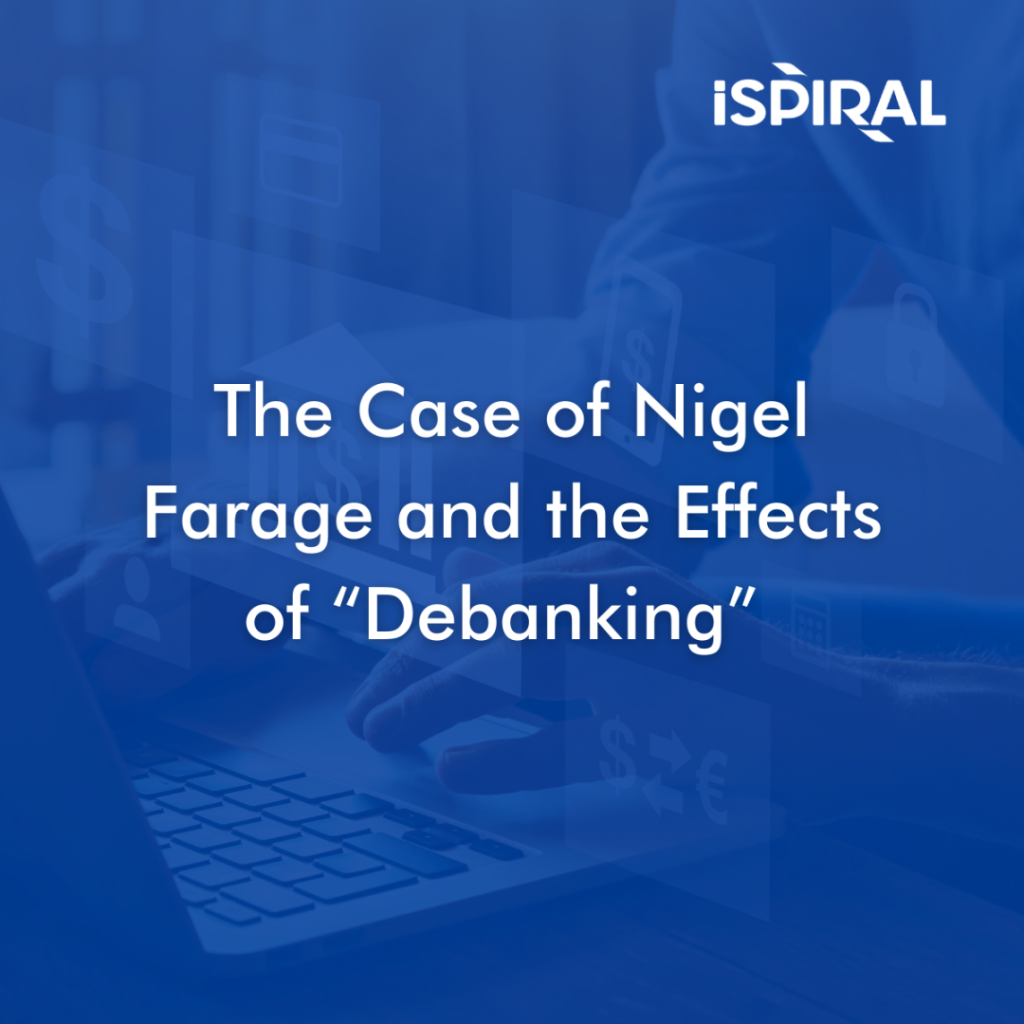Data reveals that UK banks are closing over 1,000 accounts daily (Source: “The Guardian”). Why? They often use a tactic called “debanking”. This practice means that banks stop offering financial services to specific customers.
Banks have the right to choose who they do business with. In some cases, they may deny services to customers that are believed to have very high money laundering risk that is outside the risk appetite of the institution.
The Nigel Farage Case
Nigel Farage, a former politician who was Leader of the UK Independence Party (UKIP), recently faced a challenge. Coutts informed him in July 2023 about closing his accounts. But Farage wasn’t convinced. He used a “subject access request” and got a report from Coutts. The report had some surprises. It hinted that the bank considered his political views when deciding to close his account. “The Guardian” shared two main points from the Coutts Committee regarding Farage:
- “The client’s economic contribution is now sufficient to retain on a commercial basis”
- “The committee did not think continuing to bank Nigel Farage was compatible with Coutts given his publicly stated views that were at odds with our position as an inclusive organization.” Farage was considered as posing significant reputational risk to the bank.
Why “Debanking” is a Problem
In the UK, around 90,000 individuals were classified as “politically exposed persons,” leading to specific politicians and family members facing bank rejections. This category includes Members of Parliament (MPs) and other individuals who are deemed potentially prone to abusing their positions for private gains. But it’s crucial to note that being a PEP doesn’t mean you’ve done something wrong.
PEPs should have the same banking access as everyone else. Yet, many banks turn them away without clear explanations. That’s worrying. It questions the fairness and transparency of the banking sector.
New Rules for Transparency in the UK
When Farage called the royal commission to examine the problem, the UK government stepped in “to address fears that banks are terminating accounts because they disagree with someone’s political beliefs”. As a result, the government has announced some new rules where consumers will be able to challenge decisions of banks for account closure.
The HM Treasury made a clear statement. It said, “Now, banks will be forced to explain and delay any decision to close an account under new rules”, ensuring transparency for customers. The new rules will give customers a 90-day notice period. So, customers will get more time. They can either challenge the bank’s decision with the Financial Ombudsman Service or find another bank. Moreover, banks will have to be clear about why they’re closing an account. This measure aims to enhance transparency for customers and support their right to challenge such decisions.
What’s Next?
As the case unfolds and the new rules take effect, stakeholders in the financial industry will be closely observing the developments. The goal is to strike a delicate balance between safeguarding against potential money laundering risks and respecting the rights and freedoms of individuals, including those classified as PEPs. With these changes, the hope is to establish a more transparent and equitable banking environment that upholds the principles of inclusivity and due process for all customers.



